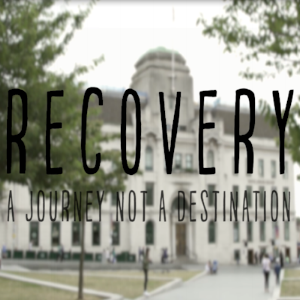To mark this year’s World Mental Health Day (October 10th) we funded a film along with Greenwich Time To Talk entitled ‘Recovery: A Journey Not a Destination.’
In it, we interviewed three young women who had all at some point been diagnosed with a mental health condition. In the film, they speak eloquently about their recovery, their aspirations and dreams. We asked the three women to keep a ‘recovery journal’ for the duration of filming to detail their recovery.
Each day they could write anything from one word to drawing pictures to depict how they were feeling that day. The results are very moving as can be seen in the film.
In discussing what recovery means to them, the details are interesting. The students of the Recovery College Greenwich found purpose in attending courses at the College. One student hopes to get a job and is busy taking qualifications to ‘better’ herself ‘just like anyone else.’ Another young woman hopes to become an animator and put her artistic talents to good use.
Whatever our hopes and dreams for recovery may be there tends to be certain elements of the foundation that recovering people have in common:
Hope: In all forms of recovery from mental ill-health the patient needs to be given hope that recovery is possible and then to internalise that hope for a better life within themselves.
Medication/Treatment: For most people recovering from a psychiatric diagnosis, the route to find the most suitable medication can be a frustrating, time-consuming one. But once the right medication is found working together with the mental health professionals, most people accept the need for medication to stabilise their condition.
Empowerment: People in recovery need to feel empowered that they can achieve and that anything is possible.
Support: The need for support in recovering from a mental illness is vital. Whether it be formal support from a Psychotherapist or Counsellor or more informal support from friends and family, the need to check one’s perspective and direction is crucial to recovery.
Self-Help: Many find self-help books, therapeutic readings and even support groups a helpful aid to recovery and ongoing inspiration to drive their recovery forwards. Sharing in a group can be great for picking up useful tips from our peers.
Spirituality: Many find some form of spirituality really useful to recovery. The feeling that we are not alone that we are being helped along our path can be very comforting.
Employment/Meaningful Activity: When the time is right, the desire to take part in society by contributing our skills can be strong. Volunteering is a great route to work to gain useful skills and experience while giving back to the community. Agencies such as SEEC help people recovering from mental ill-health find meaningful work.
If you include certain aspects of the above spectrum or all elements, you will be well on your way to building a firm foundation for recovery. As the women in our film portray, recovery is a complex and personal journey which takes effort and dedication. Contact Bridge today to build your unique bespoke package of care to help you on your journey.

